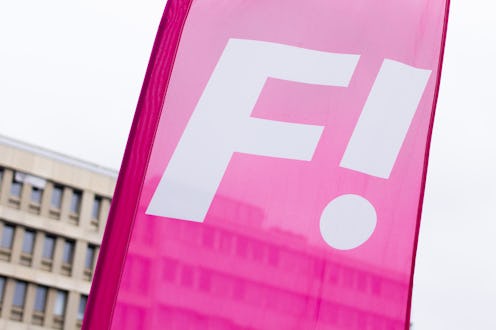
With feminism constantly under attack, the onus is often on feminists to convince others that, no, we have not yet achieved equality, and yes, we still need to work towards it. At the same time, acknowledging the progress women have already made also helps us understand why feminism is necessary — because it shows it's working. Without losing sight of the sexism rampant throughout the world, we can still celebrate the strides that feminism has made thus far and be proud to be a part of that movement.
Gender equality is not around the corner, and there will be no milestone where we can say with certainty, "We're done." We will not be done just because people all make the same amount of money for the same work or fewer sexual assaults happen (though those would both be great achievements!). We will only be done once the lived experience of being a woman or a gender-nonconforming person is not fraught with objectification, fear of violence, insecurity, self-hatred, and all the other emotions that come from knowing you are considered less than human. Rather than expecting these experiences to end, what feminism can give us right now is the knowledge that we're not crazy for having them, that they're worth combatting, and that we're in the fight together.
Here are some reasons we should be proud to be feminists, because our efforts may be ongoing, but they're not fruitless.
1. The Wage Gap Is Closing
A 2011 Bureau of Labor Department report found that women's median full-time earnings in the United States were 77 percent of men's. However, this number was 59 percent in 1963, so here's to hoping we continue progressing at the same rate and have wage equality by 2070 (or sooner!).
2. Women Are Getting Better Educations
Between 1994 and 2012, the percentage of female high school graduates going off to college in the United States rose from 63 to 71 percent. In fact, there are now more women graduating college than men, and more are earning advanced degrees as well. During the 1999-2000 academic year, 47 percent of doctorates were awarded to women. That number went up to 53.3 by the 2009-10 school year. The percentage of master's degrees awarded to women also went up from 60 percent to 62.6 percent. This is in the United States, however; we should remember that 62 million girls worldwide are still not in school.
3. Women Are Breaking Into Male-Dominated Fields
"Male-dominated" is relative — once upon a time, computer science was considered a women's profession, and medicine is considered a woman's profession in Russia — but women are nevertheless breaking into certain professions that were considered men's territory in the recent past in the United States. In 1970, 9.7 percent of physicians and surgeons were women; between 2006 and 2010, 32.4 percent were. During that same time, the number of women lawyers and judges increased from 4.9 to 33.4 percent. For the first time, we have three women on the U.S. Supreme Court, which is a huge help when issues like birth control coverage come up.
4. Women, Particularly Women Of Color, Are Transforming Labor Movements
Women's union membership has been steadily rising over the past few years, bringing the wage gap and issues faced by domestic workers to the forefront of the movement. And it's working: Women in unions make 31 percent more than women outside them.
5. We Have Two Women Running For U.S. President And Several Women Leaders Throughout The World
Hillary Clinton and Carly Fiorina are not the first women to run for U.S. president — Shirley Chisholm did in 1972. And if either wins, she will not by any stretch of the imagination be the first woman to lead a country. There are already many women leading governments throughout the world.
6. People Of All Gender Identities Are Recognizing Feminism's Importance
A number of male celebrities have advocated for feminism. John Legend, for example, said, "We are better off when women are empowered — it leads to a better society.” Feminism has also helped trans, gender-fluid, and otherwise gender-nonconforming people express themselves outside the gender binary. Genderqueer comic artist Justin Hubbell writes in their "It's Not A Race" comic that feminism helped them realize presenting as feminine didn't have to mean shaving or wearing makeup.
7. Feminism Is Defined As "The Advocacy Of Women's Rights On The Grounds Of Political, Social, And Economic Equality To Men."
This definition still leaves much to be desired — feminism is really the advocacy of all people's rights regardless of gender, because there's more than women and men. (Hi there, intersectionality!) But the point remains that there's nothing about feminism to be ashamed of. It's a simple philosophy stemming from the concept that we should all be treated fairly. And that's something of which to be proud.
Images: Håkan Dahlström/Flickr; Giphy(5)